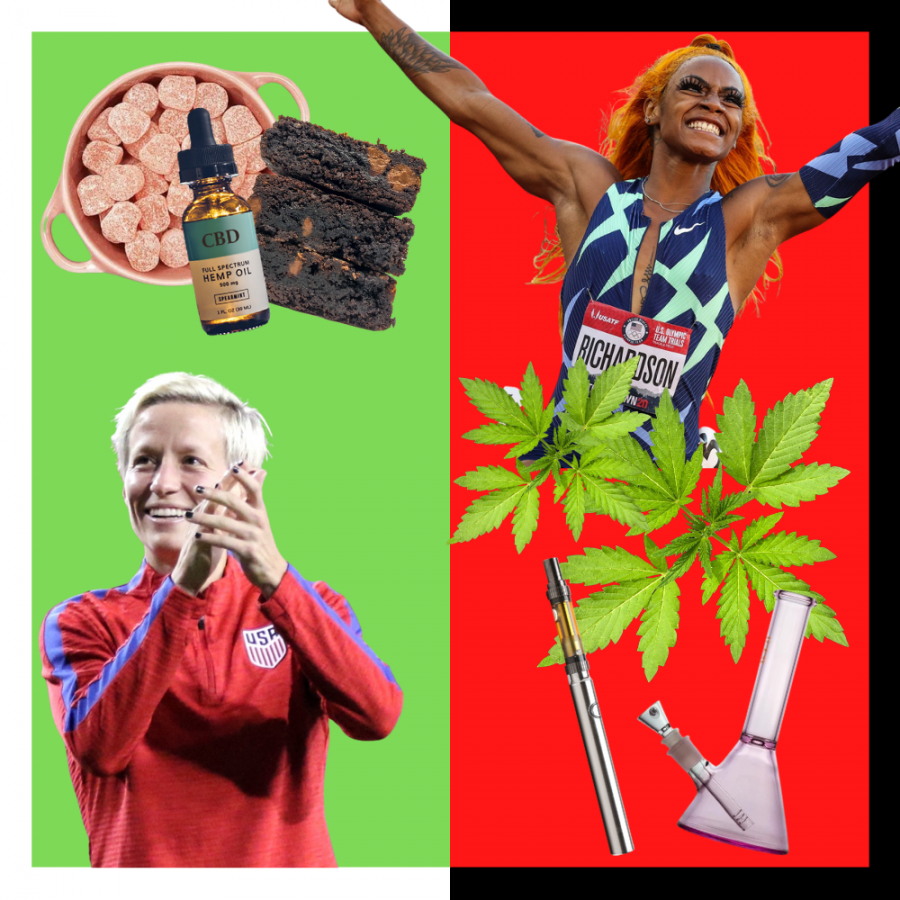Just a month after Sha’Carri Richardson’s controversial suspension from the Olympics due to a failed drug test, American soccer star Megan Rapinoe made headlines for bringing cannabis to the world stage with her CBD-based wellness company, Mendi.
While the World Anti-Doping Agency (WADA) removed cannabidiol (CBD) from its list of prohibited substances in 2017, tetrahydrocannabinol (THC) still remains on the list today.
Megan Rapinoe has publicly voiced her support for all athletes being able to use CBD and THC to manage recovery, stress, anxiety and pain. In the same Forbes article, Rapinoe also acknowledged how Black and Brown people are disproportionately affected by the prohibition of cannabinoids.
The role of cannabis in this year’s Olympics highlights the alternate reality for white people in the United States. Moreover, it shows that while Megan Rapinoe has been a champion for equal pay in sports and for rights in the LGBTQ+ community, her whiteness excludes her from certain discrimination BIPOC face in those areas.
The public is well aware that following the legalization of marijuana, there has been a stark contrast between the reality of individuals who created an overwhelmingly white multi-billion dollar cannabis industry and the harsh reality of Black and Latinx people who are disproportionately incarcerated for drug offenses (including those related to marijuana).
There are historical parallels between drug prohibition and the racially biased cultural perception of similar drugs like crack cocaine and cocaine. However, the difference between Richardson’s and Rapinoe’s ability to openly use cannabis for pain management are rooted in a tendency of discrediting Black women’s pain while empathizing with white women’s pain.
“Rules are rules.”
Critics online both in mainstream and social media have expressed little sympathy to Sha’Carri Richardson, citing how important it is for her to suffer the consequences of her actions.
Even though THC and CBD are different chemical compounds with different regulations, the bottom line is: Richardson and Rapinoe both use cannabis to manage their pain. Rapinoe’s “pain” is the stress, anxiety and physical strain of being a world-renowned athlete much like Richardson who was coping with the same factors augmented by the loss of her biological mother.
This year Megan Rapinoe gained notoriety for promoting a holistic, CBD-based health alternative for athletes when just a few weeks prior, critics offered little to no sympathy for up-and-coming, gold-medal favorite Sha’Carri Richardson as her Olympic dreams were stripped away.
Black women are often praised for being strong, independent and resilient. Those qualities are worth celebrating, but sometimes this characterization of Black women lends itself to the expectation that Black women have to endure structural and personal challenges with little support from others.
This year’s disqualification of top Black athletes along with the exclusion of swim caps for natural Black hair highlight white supremacy’s influence on the Olympics. What it means to be a woman, what it means to be professional and what it means to be worthy of representing the United States on the world stage have all been shaped by structural racism.
As Americans reflect on this year’s Olympics, we must be conscientious of how we can restructure both our communities at home and the regulations for top-level performers to ensure that sports are inclusive enough to allow all of our athletes to reach their full potential.
Jessica Octavio is a senior studying microbiology. Follow her Twitter @jessicaoctavio_.










